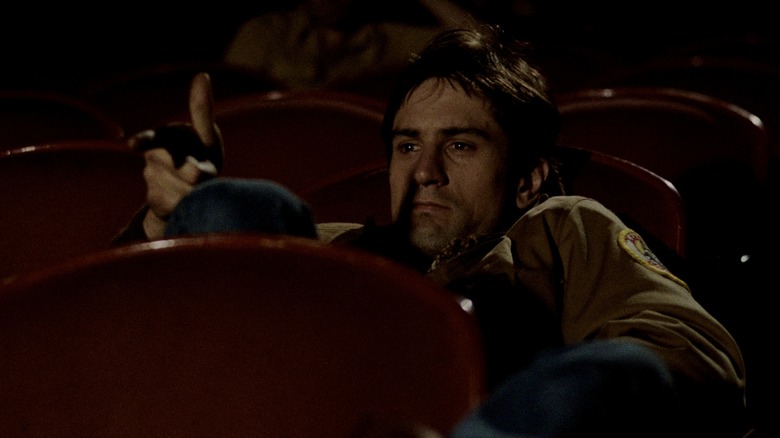
Long before he became an outspoken presence on social media or helmed the critically acclaimed films "First Reformed" and "The Card Counter," Paul Schrader made a name for himself as a screenwriter, known for his legendary collaborations with director Martin Scorsese. In the 1980s, they worked on "Raging Bull" and "The Last Temptation of Christ" together, but the first of their collaborations — and the one that set the mold for many of Schrader's protagonists in the years to come — was "Taxi Driver."
Released in February 1976, "Taxi Driver" put the up-and-coming young Robert De Niro in leading-man mode after he had given memorable supporting turns in Scorsese's "Mean Streets" and Francis Ford Coppola's "The Godfather Part II"—scoring his first Oscar nomination and win for the latter. "Taxi Driver" is a classic that has made its way into the National Film Registry and onto many lists of the greatest movies of all time, but for Schrader, it came from a dark place.
After earning his master's degree at the UCLA Film School, Schrader started out as a movie critic, with Pauline Kael, the famous New Yorker reviewer, serving as his mentor. However, his personal and professional life had taken a turn for the worse when he penned the script for "Taxi Driver." In a 2006 interview with The Guardian (via Far Out), he explained:
"At the time I wrote it, I was in a rather low and bad place. I had broken with Pauline [Kael], I had broken with my wife, I had broken with the woman I left my wife for, I had broken with the American Film Institute and I was in debt."
God's Lonely Man
In "Taxi Driver," De Niro's iconic yet no less disturbed character, Travis Bickle, talks to himself in the mirror and unspools his thoughts for the audience in voiceover, saying, "Loneliness has followed me my whole life, everywhere. In bars, in cars, sidewalks, stores, everywhere. There's no escape. I'm God's lonely man."
Schrader came from a strict Calvinist upbringing, but he had come unmoored at the time, and for a period of several weeks in L.A., he slept in his car and lived like Bickle. He was suffering from depression and alcoholism, and his late-night wanderings took him to bars and porn theaters.
He developed an ulcer, which took him to the hospital, where he finally had some human contact. He explained:
"When I was talking to the nurse, I realized I hadn't spoken to anyone in weeks ... that was when the metaphor of the taxi cab occurred to me. That is what I was: this person in an iron box, a coffin, floating round the city, but seemingly alone."
For Schrader, writing "Taxi Driver" was not just therapeutic; it was something he did to "exorcise the evil" he felt within himself. Having art as an outlet enabled him to survive and thrive in Hollywood as both a writer and director.
Since then, his career has had its ups and downs, while his characters often remain tortured individuals with self-destructive, even masochistic urges. However, we highlighted "First Reformed" as one of the best cinematic comebacks of the 2010s, and that film and most others in Schrader's career would not have been possible without "Taxi Driver." So at least some good was able to come out his harrowing experiences as a lonely young man in the 1970s.
Read this next: The 14 Best Val Kilmer Movies Ranked
The post The Real-Life Trauma That Inspired the Taxi Driver Script appeared first on /Film.
0 Comments